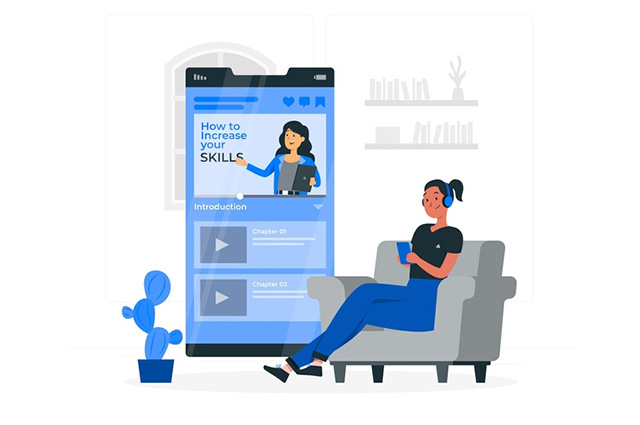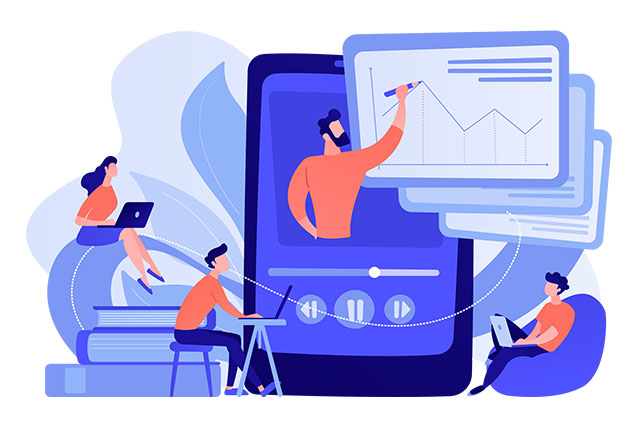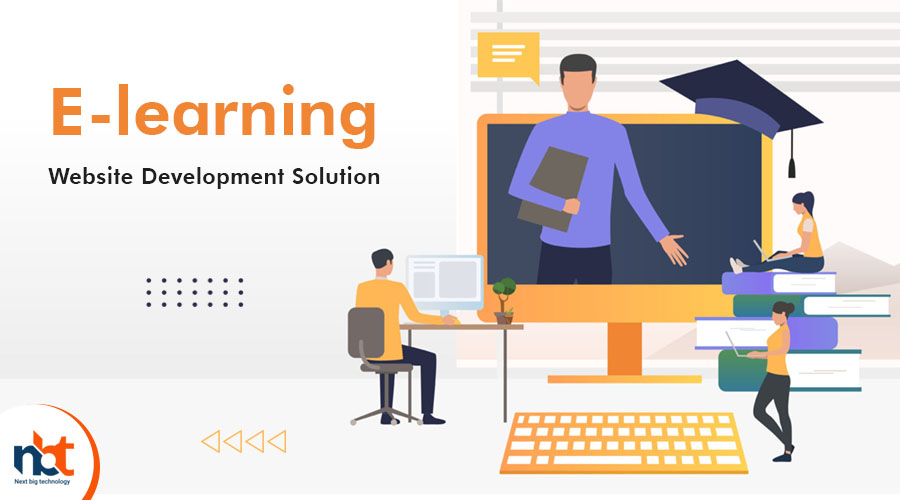The use of e-learning portals has become increasingly popular over the years due to its advantages in providing remote access to educational resources and flexible learning opportunities. E-learning portal development involves the creation of an effective online platform that allows students, educators, and administrators to interact with each other and access course materials seamlessly. The development process typically involves designing user-friendly interfaces, creating content management systems, integrating multimedia features, and ensuring security measures are in place. Effective e-learning portal development also requires an understanding of various programming languages such as HTML, CSS, JavaScript, and PHP. Developers must be able to adapt to new technological advancements such as mobile optimization, cloud computing, and artificial intelligence integration. A successful e-learning portal can significantly increase student engagement levels whilst simplifying the administrative workload for educators.
Table of Contents
Choosing the Right Platform for Your E-learning Portal
Also Read : E-learning Website Development Solution
When choosing the right platform for your E-learning portal, it is important to consider a variety of factors to ensure that you are making the best decision for both your organization and your learners. Firstly, you should evaluate the features and capabilities of each potential platform, including functions such as assessments, discussion forums, multimedia integration, and course tracking. You should also consider the ease of use and user interface of each option to ensure that learners can easily navigate the portal.
It is important to take into account scalability and customization options in order to accommodate future growth and adaptability. Security measures should be carefully scrutinized as well – particularly when dealing with sensitive learner data. Budget constraints need to be considered too while weighing up issues like reliability or customer support options before selecting any particular learning management system (LMS) or online training platform.
Also Read : The Beginner’s Guide to How to Create an Elearning Platform
Designing and Developing Your E-learning Portal
Designing and developing an e-learning portal requires both software development and instructional design expertise. Developing an e-learning portal is a complex process that needs careful planning, and collaboration between instructional designers and developers while keeping in mind that accessibility is paramount for reaching diverse learners globally. A well-designed e-learning platform should be user-friendly, accessible from various devices, customizable for the learning objectives at hand, and able to support a wide range of content formats.
A successful e-learning portal should integrate multimedia elements such as visuals, animations, and interactive simulations to facilitate understanding and engagement among learners. Developers must consider issues such as data security and system connectivity when creating the portal’s infrastructure. The usage of analytics tools helps monitor the performance of individual learners or groups of them which will enable instructors to make necessary adjustments to improve learning outcomes.
Integrating Multimedia and Interactive Elements in Your E-learning Portal
A multimedia and interactive component-rich e-learning portal is essential for creating an engaging and successful learning environment. Learners can better understand complex subjects and remember knowledge via movies, audio samples, visuals, and animations. Additionally, by using interactive elements like games, simulations, and quizzes, students may test their understanding in real-time and get rapid feedback.
However, to optimize the effectiveness of these tools, it is important to ensure adequate bandwidth, appropriate devices for displaying multimedia content (such as mobile screens), and easy navigation within the portal. Additionally, regular updates to content and technology are required to keep up with advancements in e-learning methodology. When done correctly, this integration of multimedia and interactive elements can lead to highly engaging educational experiences that boost learner engagement and motivation while enhancing overall comprehension levels.
Also Read : A Deep Dive Into Features of E-Learning App Development
Testing and Launching Your E-learning Portal

It is recommended that organizations invest in cloud-based technology for enhanced scalability, speed, data management, and user experience. When the portal is finally launched, comprehensive training materials should be provided to e-learners for optimal adoption rates. Regular evaluations of the platform are necessary to ensure improvements are made as necessary over time to maintain a top-quality experience for learners. By taking these steps seriously when testing and launching their e-learning portals, you can effectively reach wider audiences with your portal while delivering exceptional value.
Also Read : How to Develop an eLearning Website and App Like Udemy?
Maintenance and Updates for Your E-learning Portal

Maintenance activities include routine checks for security vulnerabilities such as malware or hacking attempts, fixing database issues, backing up data regularly, and optimizing website speed. Frequent content updates will keep students engaged and provide them with the latest information relevant to their respective courses or subjects of interest. Regular maintenance and updates guarantee a competitive edge in the education industry by ensuring an efficient and enriching learning experience for users on your online platform.
Also Read : Costs and Features of E-Learning Application Development
Wrapping Up!
Developing an e-learning portal offers a plethora of benefits, including the ability to facilitate distance learning, skill-building, and knowledge acquisition. With an e-learning portal, students can access courses at their convenience, from anywhere in the world, saving valuable time and offering unparalleled flexibility. A well-designed e-learning portal can also provide a vast array of multimedia resources, such as videos, images, and interactive activities, to enhance student engagement. This is particularly useful for students who thrive on visual and interactive learning experiences. It can also effectively track students’ progress, providing personalized feedback on their performance making the development of an e-learning portal a must in today’s digital age. By embracing this technology, educators can provide their students with the tools they need to succeed in the modern world.
Thanks for reading our post “eLearning Portal Development”. Please connect with us to know more about eLearning Portal Development Services.



















